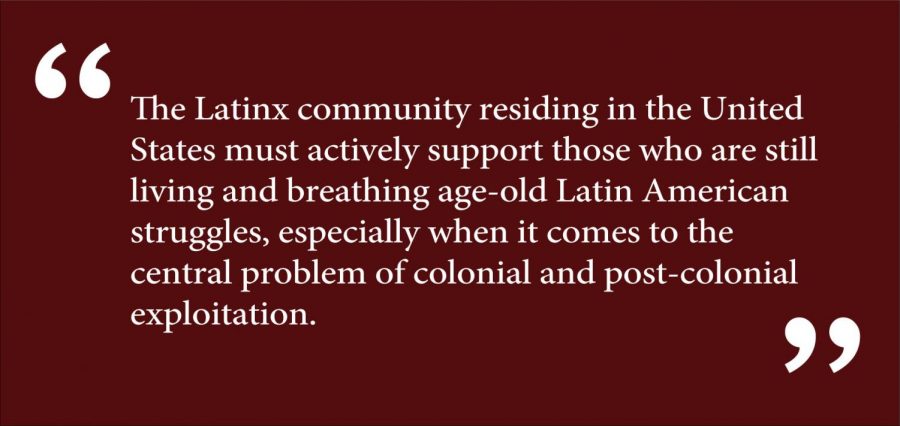Opinion: What it now means to be Latinx in the U.S.
November 15, 2017
Across the United States, the Latinx community — now the largest ethnic or racial minority in the country — has grown more prominent in cultural, social and political spheres. Part of this rapid growth can be attributed to strong cultural connections that arise from a shared history. However, as Latin America continues to wrestle with complicated problems of inequality and development, it is important to step back and discuss the implications of being a member of the growing U.S. Latinx community. Who makes up the Latinx community in the United States? Why are they connected more by cultural rather than political discourses? How do they represent the people who are still currently living in Latin America? These questions are tough to answer, and the Latinx community residing in the United States must actively support those who are still living and breathing age-old Latin American struggles, especially when it comes to the central problem of colonial and post-colonial exploitation.
As a first-year at Brown from a Latino background, living in the continental United States for the first time, I have noticed and experienced a complicated relationship between Latinx communities inside and outside of Latin America. In recent years, the mass exodus of people from countries in South and Central America as well as in the Caribbean to the United States have brought mainstream attention to long-entrenched conflicts — started, in part, because of harmful U.S. policies. Unfortunately, I have found that a lack of empathy between Latin American communities has enabled serious levels of resentment and made the resolution of complicated challenges difficult.


















